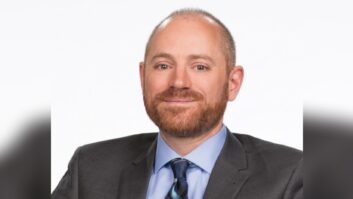
As I talk with program directors around the USA, I find a recurring theme concerning research: There isn’t much.
I repeatedly hear that the research budget, once a favorite target of cuts, isn’t being cut anymore — because there hasn’t been research money allocated for several years.
The result is that we now have more PDs than ever making uneducated guesses as to what their audiences want from them.
Worse, several of the younger PDs with whom I’ve spoken are absolutely convinced they know what their audience likes, or doesn’t like, based on personal intuition. It hasn’t occurred to them that they bring their own bias and baggage to divining what they believe their listeners are thinking.
While I have no magic wand that will return research budgets to you, I am suggesting that PDs now need to make a greater effort at gathering opinions from target audiences that may shed a least a little light on decision-making.
Make no mistake, however: This is not a substitute for real research executed by professionals who can help recruit/screen, ask the proper questions and interpret answers into action items that produce positive ratings results.
Careful questions
What can you hope to accomplish and how do you start?
You’re not going to be able to do proper perceptual or music research, but you can do focus groups. The simplest method is to conduct a series of “listener advisory board” panels, in which you ask several groups the same questions to determine if there are patterns in the answers you receive.
Your first step is determining a “screener.” The goal of the screener is find people for your research group who match the core of your target demo.
For example, if you are a sports FM station that doesn’t carry baseball, you are likely looking for men 18 to 40 who consume at least two hours of sports entertainment per week and listen to your radio station.
After determining who you’re looking for, how do you find them?
Your website, Facebook page and your own airwaves are great places to find recruits. Another method is to try Craigslist or another local classified vehicle that is likely to reach your target. Advertise that you are seeking people who have opinions about music, or sports, or talk — whatever you’re researching. Offer an incentive such as small sums of cash, tickets or T-shirts to pump up participation.
You’re trying to find 10 to 15 people who can meet for about an hour one early evening or on a weekend. You’ll want to schedule three or four separate groups of people. Why so many? Some won’t show even when they tell you they’ll be there; and the group size has to big enough that you obtain a variety of opinions.

One powerful DIY research tool is the focus group or ‘listener advisory board.’ Consider asking questions about your on-air talent, the layout of your website, your Facebook page, what you do with Twitter, your contests and what your panel thinks of your direct competitors. Do not ask the group questions about how they might feel about something offered in the future.
It’s vital that the moderator not lead the group to answers. The minute a moderator expresses his or her own opinion about a question, the entire session is in jeopardy. This is why I recommend having someone else moderate your panels while you watch from a corner of the room. Perhaps you can find a program director from a sister station with whom you can trade groups.
A moderator must be careful about the dynamic of each focus group. When it’s obvious that one person is leading every question, the moderator must intercede and pull opinions out of other participants.
When asking questions concerning talent, it’s a great idea to use recordings (the same ones for each group). Make sure these are short enough to keep people’s interest but long enough to be representative. Ask the group what they liked and what they didn’t.
Finally, when you do focus groups, you must be open to hearing things about your radio station that make you uncomfortable. Since you have pride in your product, it’s not easy hearing negativity, or views that fly in the face of what you believe.
Remember, the key to being a great program director is being a great listener!
The author is president of Lapidus Media. Contact him at[email protected].











